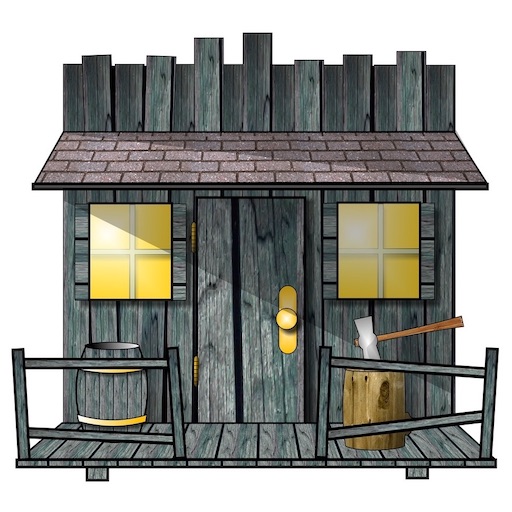Combat missions of the Portuguese Colonial War, both Portuguese and insurgent
Portuguese Colonial War
Portugal was the first European country to arrive in Africa and the last to leave. Between 1961 and 1974 Portugal conducted three simultaneous campaigns in Guinea-Bissau, Angola and Mozambique – collectively called the Portuguese Colonial War (Guerra Colonial) or Overseas War (Guerra do Ultramar). It was Portugal’s first major war since World War I. The Colonial War was small scale and involved the Portuguese manning and supplying fortified posts whilst trying to locate and destroy small guerrilla bands with intervention units (unidades de intervenço). The war is sometime described, particularly by Portuguese participants, as the Vietnam in Africa.
Musing on Looting in Fogo Cruzado
A feature of African conflicts was that poor quality troops were inclined to looting. So I though I’d see what that could look like in Fogo Cruzado, my Crossfire variant for the Portuguese Colonial War. What I came up with is the Looter characteristic. At some point, after play testing, these might become part of my Fogo Cruzado: Crossfire House Rules for the Portuguese Colonial War or perhaps a special rule for a specific scenario.
Way of War: Warfare during the Portuguese Colonial War
The title of this page is inspired by John Cann’s book Counterinsurgency in Africa: The Portuguese way of war 1961-1974. Cann (1997) argues that during the Portuguese Colonial War the Portuguese had a novel, and largely successful, approach to the challenges of counter-insurgency.
Sources for the Portuguese Colonial War
An annotated bibliography for the Portuguese Colonial War. Not surprisingly I concentrate on the English languages sources.
What wargaming rules to use for the Portuguese Colonial War
Of course I’m interested in wargaming the Portuguese Colonial War. The question is what rules?
Protagonists (Factions) of the Portuguese Colonial War
During the Portuguese Colonial War Portugal faced 27,000 insurgents spread across three theatres (Cann, 1997). The insurgents represented a wide range of, and often conflicting, liberation movements. Factions within a wider insurgency. I’ve only listed those that had armed forces in the field. Generally they fought in small groups; a force of 200 insurgents gathered in one place was rare.
Painting Guide for the Portuguese Colonial War
This is both a uniform guide and a painting guide for the Portuguese Colonial War. It covers the Portuguese forces and the insurgents.
Sources for Fogo Cruzado
An annotated bibliography for Fogo Cruzado, my variant of Crossfire for the Portuguese Colonial War of the 1960s and 1970s. Or, more strictly speaking, sources of inspiration.
Fogo Cruzado: Crossfire House Rules for the Portuguese Colonial War
Fogo Cruzado is my variant of Crossfire for the Portuguese Colonial War of the 1960s and 1970s. It derives from my general thoughts on Wargaming Rules for the Portuguese Colonial War. All my Crossfire House Rules apply. These house rules are specific to Fogo Cruzado.
Geography of the Portuguese Colonial War
A key part of military history is the terrain the campaigns are fought over. So I thought I’d up a quick description of the geography of the areas contested in the Portuguese Colonial War.
15mm Wargaming Figures for the Portuguese Colonial War
A few manufacturers offer suitable figures for the Portuguese Colonial War but Peter Pig dominates the field. I’ll go through the Peter Pig options blow-by-blow and then mention some other players.
Cazadore Battalion 4512 and the Siege of Guidaje
I was googling about the Portuguese Colonial War when the account of the Siege of Guidaje on the Batalhão de Caçadores 4512 – Guiné 1972/74 site caught my eye. I thought I’d translate it, roughly, with some help from Google.
15mm Portuguese Machine Guns – MG42, MG13, Madsen
If you’ve seen my page on 15mm Figures for the Portuguese Colonial War you’ll know that Peter Pig is the only source of Portuguese figures, i.e. with the G3 rifle and Portuguese cap. The trouble is the machine guns. The Peter Pig figures have a GPMG as the squad support weapon and some Russian thing on wheels as their heavy (HMG). That might be suitable for insurgents but not for Portuguese.
Timeline for the Portuguese Colonial War
The Portuguese had been in Africa a long time before the Portuguese Colonial War started. The Portuguese founded Luanda in Angola in 1576 (see my African New World) and in the late 19th Century the Portuguese scrambled for the interior of Africa along with the rest of Europe (see Portuguese Scramble for Africa). There had been many wars and revolutions within the Portuguese African possessions throughout those centuries but, in a sense, the ultimately successful liberation wars really began with a UN resolution in 1955.
UPA / FNLA / GRAE Order of Battle during the Portuguese Colonial War
The UPA (União das Populações de Angola) was a non-marxist nationalist organisation formed in 1957 (Abbott & Rodrigues, 1998; Cann, 1997; Morris, 1974). There membership was largely from the Bakongo people whose territory spanned Angola and Belgium Congo. As time went on they gained support from the more southern Ovimbundu and Nhaneka-Humbe peoples. Belgium Congo (Zaire) became independent in 1960 and from 30 Jun 1960 the new regime began to support the UPA including allowing them a radio station and training camp. The movement received support from Congo, Algeria and the US





